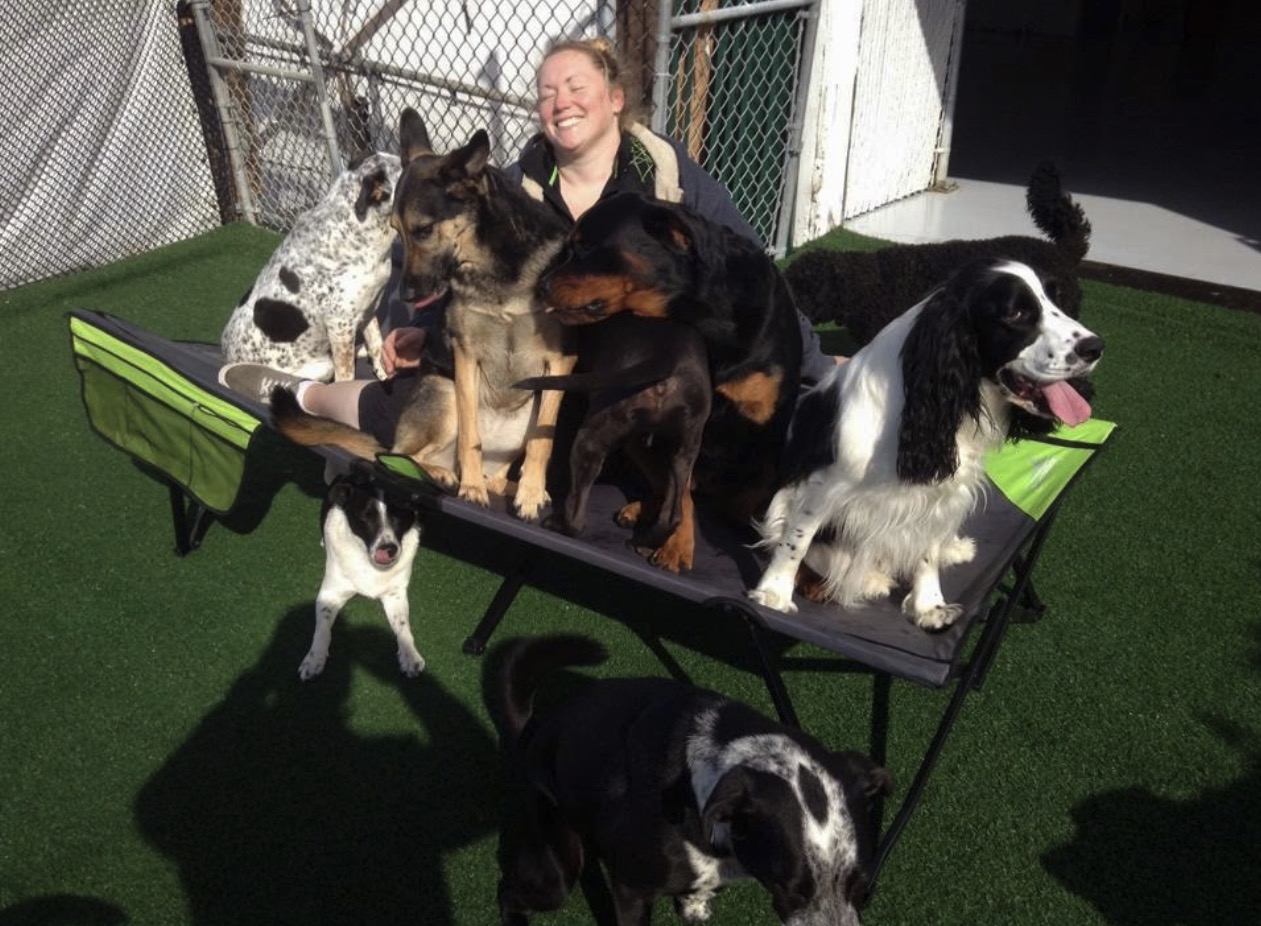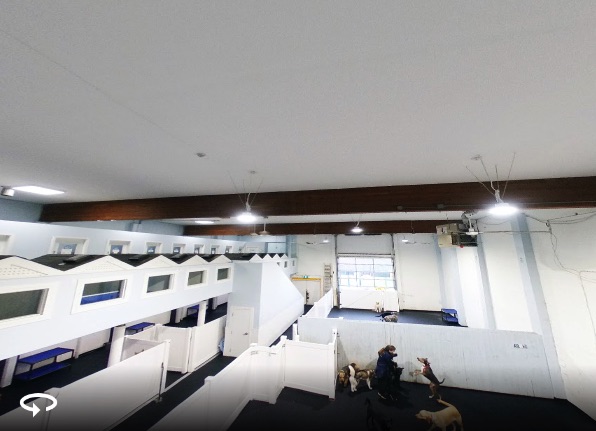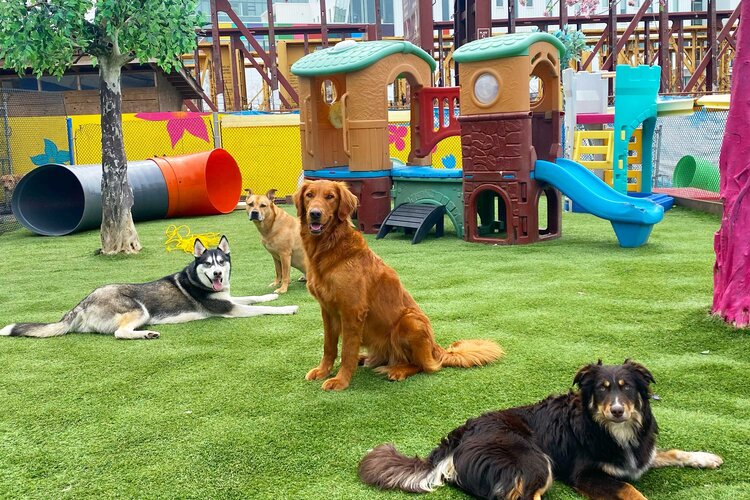
The Essential Guide to Choosing the Right Dog Boarder
Trying to find the perfect dog boarder can often feel overwhelming. With the plethora of options available, it’s crucial to understand the basics of dog boarding and its significance in your pet’s life. Dog boarding isn’t just about finding a temporary shelter for your furry friend; it’s about ensuring they receive the same love, care, and attention they’re accustomed to at home. Selecting the right boarder goes beyond basic needs, encompassing factors like socialization, safety, and emotional well-being. The goal is to provide your dog with a comfortable and enjoyable experience, so you can have peace of mind while you’re away.
Fun Fact: Did you know that dogs, like humans, can experience separation anxiety? Finding a boarder that provides a nurturing environment can significantly ease this anxiety.
Whether it’s a short business trip or an extended vacation, leaving your dog in capable hands is paramount. This guide aims to equip you with the knowledge and tools to navigate the world of dog boarding with ease, ensuring your dog’s stay is as comfortable and stress-free as possible. From understanding what to look for in a boarder to preparing your dog for their stay, we’ll cover everything you need to know to make an informed decision.
Key Takeaway: Choosing the right dog boarder is crucial for your pet’s well-being and your peace of mind. This guide provides comprehensive insights into making an informed decision.
Evaluating Potential Dog Boarders
When it comes to selecting a dog boarder, your priority should be finding a place where your dog feels safe, comfortable, and happy. Start by identifying the key qualities that make a great dog boarder. Look for facilities with knowledgeable and compassionate staff, clean and well-maintained premises, and a positive atmosphere. It’s essential to visit the boarding facilities in person to get a true sense of the environment your dog will be staying in. During your visit, pay attention to how the staff interacts with the dogs and the overall cleanliness and organization of the space.
Fun Fact: A study found that dogs can form attachments to their caregivers similar to the way children bond with their parents, highlighting the importance of a caring boarding environment.
Be wary of red flags such as overcrowding, lack of cleanliness, or indifferent staff. These can be indicators of poor quality care. Additionally, it’s important to verify the boarder’s credentials. This includes checking for any necessary licenses, certifications, and positive reviews from other pet owners. A reputable boarder should also be transparent about their policies and procedures and willing to answer any questions you may have.
Remember, the right boarder should offer more than just basic needs; they should provide a nurturing environment where your dog can thrive. This includes opportunities for play, exercise, and socialization, as well as quiet areas for rest. Understanding the boarder’s emergency procedures and safety measures is also crucial. Ensure they have a plan in place for medical emergencies and are equipped to handle any situation that may arise.
Key Takeaway: A thorough evaluation of potential dog boarders is essential. Look for cleanliness, positive staff interactions, and comprehensive care beyond basic needs.
Services and Amenities Offered

Understanding the range of services and amenities offered by dog boarders is pivotal in choosing the best fit for your pet. The type of accommodations can vary widely, from basic kennels to luxury suites. Each option offers different benefits, such as more personal space, outdoor access, or even in-suite cameras for owners to check in on their pets. Look for a boarder that aligns with your dog’s specific needs, whether that be more exercise, socialization opportunities, or a quieter environment for older dogs.
Fun Fact: Some luxury dog boarding facilities offer unique amenities like movie nights for dogs, complete with dog-friendly popcorn!
In addition to accommodations, many boarders offer additional services like grooming, training sessions, or specialized care for senior dogs or those with medical needs. These services can greatly enhance your dog’s boarding experience, providing them with extra attention and care. It’s important to consider these options, especially if your dog has specific needs or you’re looking for more than just basic care.
Don’t forget to inquire about the daily routine at the boarding facility. A structured schedule that includes set times for meals, walks, playtime, and rest can help your dog feel more at ease in a new environment. Consistency is key to ensuring your pet’s comfort and reducing stress during their stay.
Key Takeaway: Evaluate the services and amenities offered by the boarder to ensure they meet your dog’s specific needs, from basic care to extra comforts and routines.
Health and Safety Protocols
The health and safety of your dog should be a top priority for any boarding facility. This begins with mandatory vaccination and health requirements. Ensure the boarder requires all dogs to be up-to-date on vaccinations such as rabies, distemper, and bordetella. This helps prevent the spread of illness among the dogs. Additionally, check if the facility has any breed or size restrictions and whether they have experience handling dogs with specific health needs or behavioural issues.
Fun Fact: Some dog boarding facilities have on-site veterinary clinics, offering peace of mind that expert medical care is readily available.
Emergency procedures are another critical aspect of health and safety. A reputable boarding facility should have a well-documented plan for emergencies, including natural disasters, medical emergencies, or other unexpected situations. Ask about their protocol for veterinary care should your dog need medical attention during their stay. It’s also worth inquiring about the training and qualifications of the staff in handling emergencies and providing first aid.
Lastly, consider the facility’s cleanliness and maintenance. Regular cleaning and disinfecting are essential to prevent the spread of disease. Observe the condition of the kennels, common areas, and outdoor spaces. A clean, well-maintained environment is not only healthier for your dog but also indicative of a well-run facility that takes the well-being of its guests seriously.
Key Takeaway: Prioritize health and safety protocols when choosing a dog boarder, including vaccination requirements, emergency procedures, and facility cleanliness.
Daily Routine and Activities

Understanding the daily routine and activities at a boarding facility is crucial for ensuring your dog’s well-being during their stay. A structured daily schedule can significantly aid in reducing stress and anxiety for your pet. Inquire about the facility’s routine, including feeding times, walk schedules, play sessions, and rest periods. Consistent routines help dogs adjust quickly and feel more secure in a new environment.
Fun Fact: Dogs, much like humans, thrive on routine. Consistency in their daily schedule can greatly reduce stress and promote a sense of security.
Exercise and socialization are key components of a dog’s day. Facilities should offer ample opportunities for physical activity, whether through walks, playtime, or access to outdoor areas. Socialization with other dogs should be monitored and managed based on each dog’s temperament and preferences. For dogs that are less sociable or older, ask about alternative activities or quieter play areas.
Don’t forget to consider the staff-to-dog ratio. Adequate staffing ensures that each dog receives individual attention and care. Observe how the staff interacts with the dogs during your visit. Positive, caring interactions are a good indicator of the quality of care and attention your dog will receive.
Key Takeaway: A structured daily routine with ample exercise and socialization opportunities is vital for your dog’s happiness and well-being while boarding.
Communication and Updates
Staying informed about your dog’s well-being while you are away is a priority for most pet owners. When evaluating dog boarders, consider their communication policies. Ask how frequently they provide updates and through which methods, such as texts, emails, or a dedicated app. Some facilities even offer live webcam access, allowing you to see your pet in real-time.
Fun Fact: Technological advancements have led to dog boarding facilities offering innovative communication methods, like mobile apps that provide daily photos and updates of your pet.
Effective communication is not just about regular updates; it’s also about accessibility. The boarding staff should be easily reachable for any questions or concerns you might have. A good boarder will also proactively communicate any issues or observations about your dog’s health or behaviour during their stay.
Before leaving your dog, ensure you have provided the boarder with all necessary contact information and emergency contacts. Discuss how they handle situations where immediate decisions might be needed, such as a health concern or behavioural issue.
Key Takeaway: Effective and regular communication from the boarding facility is essential for peace of mind and ensures you are informed about your dog’s experience.
Preparing Your Dog for Boarding

Preparing your dog for their boarding experience is an important step in ensuring a stress-free stay. Start by creating a list of items to pack for your dog, including their food, favourite toys, bedding, and any medication they may need. Familiar items from home can help comfort your dog in the new environment.
Fun Fact: Some dogs may exhibit what’s known as a “boarding school effect,” where they learn new behaviors or improve in socialization skills during their stay at a boarding facility.
It’s also beneficial to prepare your dog behaviorally for their stay. This includes socializing your dog with other pets if they aren’t used to being around other animals. Consider short daycare visits or overnight stays at the boarding facility before an extended stay to help your dog get accustomed to the environment and the staff.
Ensure all paperwork, including vaccination records and emergency contact information, is up to date. Providing a detailed overview of your dog’s routine, dietary needs, and any behavioural quirks will help the boarding staff provide the best care possible.
Key Takeaway: Adequate preparation, including familiar items, socialization, and updated paperwork, is key to a comfortable and stress-free boarding experience for your dog.
- Check out our Complete Dog Boarding Checklist!
Understanding Boarding Costs
Understanding the costs associated with dog boarding is important for budgeting and choosing the right facility for your pet. Boarding costs can vary significantly based on factors such as location, type of accommodation, and additional services offered. Be sure to ask for a detailed breakdown of costs and what they include. Some facilities charge extra for services like playtime, grooming, or administering medication.
Fun Fact: Some dog boarding facilities offer loyalty programs or referral discounts, providing cost savings for regular customers.
While it might be tempting to choose a boarder based solely on price, remember that the cheapest option isn’t always the best. Consider the value you’re getting for your money, including the quality of care, amenities, and services provided. Some facilities offer packages or discounts for extended stays, which can be a cost-effective option for longer trips.
Don’t hesitate to discuss your budget with the boarding facility. They may be able to tailor a package to suit your needs and budget without compromising on the quality of care for your pet.
Key Takeaway: Understand the factors influencing boarding costs and look for value, not just the cheapest price. Open communication with the facility can help align services with your budget.
Special Considerations

Every dog is unique, and some may require special considerations when it comes to boarding. Dogs with special needs, such as seniors, puppies, or those with medical conditions, may need additional care. When evaluating a boarding facility, inquire about their experience and capability in handling such special requirements. Ask about their staff’s training in administering medications, dealing with behavioural issues, or providing extra care for younger or older dogs.
Fun Fact: Some boarding facilities offer ‘senior dog’ areas, designed with softer bedding and lower activity levels to cater to older dogs.
Separation anxiety is another important factor to consider. Dogs who are prone to anxiety when away from their owners may require a boarding facility that offers more personalized attention. Facilities that provide a home-like environment, with plenty of human interaction and comfort, can be more suitable for these dogs. Don’t hesitate to discuss your dog’s specific needs and behaviours with the boarding staff to ensure they can provide the appropriate care.
Also, consider the facility’s policy on handling emergencies or unexpected situations, particularly for dogs with health issues. Knowing that the boarder is prepared and knowledgeable can give you additional peace of mind.
Key Takeaway: Choose a boarding facility that can cater to your dog’s specific needs, whether they require special medical care, are dealing with separation anxiety, or have other unique considerations.
Making the Decision
After gathering all the necessary information, it’s time to make the final decision on which dog boarding facility is right for your pet. Comparing and contrasting your options based on the factors discussed earlier is crucial. Consider not only the tangible aspects like facilities and services but also your gut feeling about each place. Trusting your instincts about where your dog will be happiest and safest is often an important part of the decision-making process.
Fun Fact: Many dog owners report that after a few stays, their dogs get excited at the prospect of going to their favorite boarding facility, much like they would for a trip to the park.
Remember, the right choice depends on your dog’s individual needs and personality. A facility that is perfect for one dog may not be the best fit for another. Take the time to review your notes, revisit your top choices if necessary, and don’t rush the decision.
Ultimately, the goal is to find a boarding facility where your dog will be well-cared for and where you feel confident in the level of care they will receive. Once you’ve made your decision, ensure all arrangements are clear and confirm your booking with the facility.
Key Takeaway: Making the right decision involves balancing factual information with your intuition about the best environment for your dog’s unique needs and personality.
Looking for The Perfect Dog Boarder? Consider Jet Pet Resort!
Are you searching for a boarding experience that will provide your dog with the utmost care, love, and attention while you’re away? Look no further than Jet Pet Resort, where we understand that your pet is more than just a furry friend; they’re family!

Our compassionate and experienced team is dedicated to creating a home-like atmosphere offering top-notch amenities and personalized care tailored to your pet’s unique needs. Don’t let the stress of finding the perfect boarder weigh you down.
Reach out to Jet Pet Resort today to schedule a tour and witness firsthand how we can make your dog’s stay comfortable, enjoyable, and filled with the same affection they relish at home.
Frequently Asked Questions
What should I do if my dog has never been boarded before?
If your dog has never been boarded before, start by introducing them to the concept gradually. Begin with short daycare visits to the boarding facility, allowing your dog to get accustomed to the new environment and staff. This can help alleviate any anxiety or stress they might feel. Additionally, discuss your dog’s specific needs and behaviours with the boarding staff so they can provide the best care during your dog’s stay.
How do I know if my dog is happy at the boarding facility?
To gauge your dog’s happiness at a boarding facility, look for signs of contentment and relaxation in updates from the boarder. These can include photos or videos showing your dog engaging in play, resting comfortably, or interacting positively with staff and other dogs. Regular communication from the facility can provide insights into your dog’s emotional state and overall well-being.
Can I visit my dog during their stay at the boarding facility?
Visiting policies vary between boarding facilities. Some allow visits during your dog’s stay, while others may restrict visits to prevent disruption to the daily routine. It’s important to discuss the facility’s policy beforehand. If visits are allowed, they can be a good way to reassure both you and your dog during the boarding period.
What happens if my dog becomes ill while at the boarding facility?
In the event your dog becomes ill while at the boarding facility, the staff should promptly contact you and seek veterinary care as needed. Ensure you provide the facility with your contact information and your vet’s details. Discuss the facility’s protocol for handling medical emergencies, including their process for transporting pets to a veterinary clinic if required.
Are there any special requirements for boarding a puppy?
Boarding a puppy may require meeting specific requirements, such as completing a certain set of vaccinations due to their developing immune system. Puppies also need more attention and care, so choose a facility experienced in handling young dogs. Discuss your puppy’s specific needs, including feeding schedules, socialization, and training, with the boarding staff.
